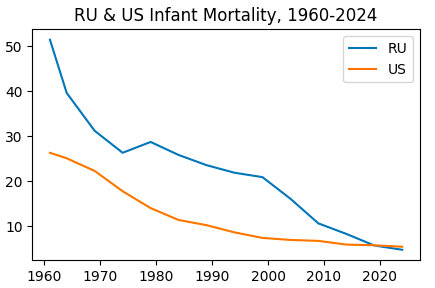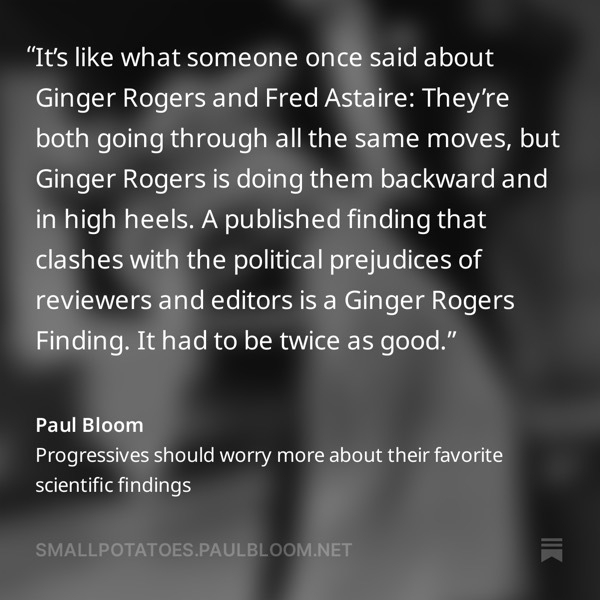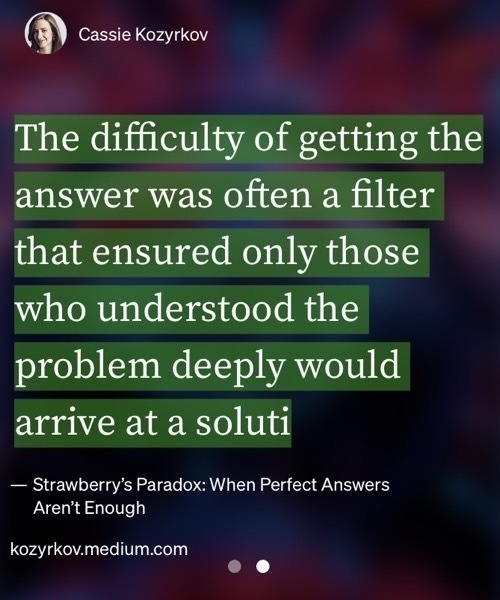| ❝ |
Infant mortality, the telltale metric that led him to predict the Soviet collapse half a century ago, is higher in Mr. Biden’s America (5.4 per thousand) than in Mr. Putin’s Russia.
|
~NYT on [Emmanual Todd & the Decline of the West](https://www.nytimes.com/2024/03/09/opinion/emmanuel-todd-decline-west.html)
Thoughts
The US has infant and maternal mortality problems, but is it this bad, or is it just Russia finally catching up?
- The CIA World Fact Book estimates 2023 Russia still behind at 6.6 infant deaths per thousand live births, versus 5.1 for the US. For comparison, it estimates 35 European countries are below 5 per thousand, and the US is on par with Poland.

- In contrast, Macrotrends data says Russia has edged ahead at 4.8, while it rates the US worse at 5.5. (US and RU data here.) That’s in line with Todd’s US number, and they claim to source from the UN World Population Prospects, so I’ll presume some overlap there. I don’t know the sources myself.
But here’s a combined trend using Macrotrend’s data, from 1960-2024 (omitting Russia’s disastrous 1950s). Even this data has the US slowly improving, so the story is Russia catching up.

Possibly relevant: birth rates are similar at 11 & 12 per thousand (Macrotrends).
Either way, Russia is close to the US now, and I’m surprised – my impressions were outdated. But this graph doesn’t seem cause for concern about the US. Comparison to peer democracies might. I’d have to read Todd’s book for the argument.
Other striking thoughts:
A specialist in the anthropology of families, Mr. Todd warns that a lot of the values Americans are currently spreading are less universal than Americans think.
Which thought continues:
In a similar way, during the Cold War, the Soviet Union’s official atheism was a deal-breaker for many people who might otherwise have been well disposed toward Communism.
And despite the US haing ~2.5x Russia’s population (per US Census):
Mr. Todd calculates that the United States produces fewer engineers than Russia does, not just per capita but in absolute numbers.
Though this may reflect his values for what counts as productive (my emphasis):
It is experiencing an “internal brain drain,” as its young people drift from demanding, high-skill, high-value-added occupations to law, finance and various occupations that merely transfer value around the economy and in some cases may even destroy it. (He asks us to consider the ravages of the opioid industry, for instance.)





